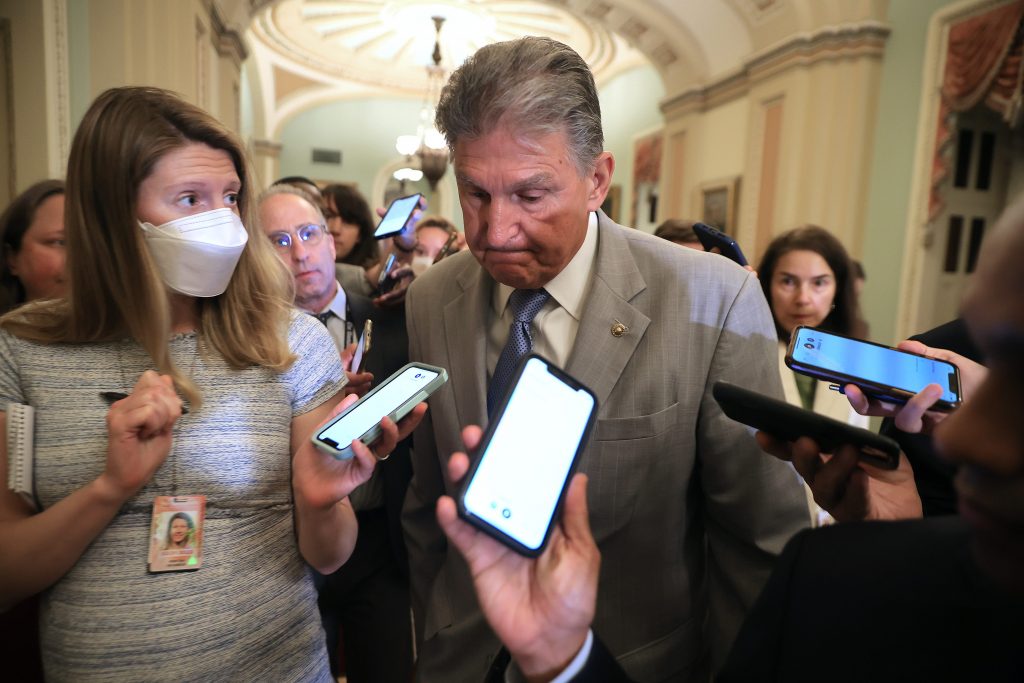- A new tax deal backed by Sen. Joe Manchin would take aim at the biggest corporations in the US.
- It states that it wouldn't raise taxes for anyone who makes less than $400,000 per year.
- Instead, lawmakers say they would generate $313 billion through corporate tax reform.
Taxpayers who make less than $400,000 a year shouldn't have to worry about having to pay more taxes because of the new deal struck by Sen. Joe Manchin of West Virginia and Senate Majority Leader Chuck Schumer.
The Inflation Reduction Act of 2022, which Manchin agreed to back in a surprise move announced Wednesday, states that it would steer clear of raising taxes for anyone with less than $400,000 annual taxable income. Instead, the plan is to revamp corporate tax and enforce a hard limit on how much big corporations can lower their taxes, which lawmakers predict will generate $313 billion for the US.
The new bill would impose a minimum corporate tax limit of 15% on companies that make $1 billion or more in yearly profits.
Corporations currently have to pay 21% corporate tax, but around 200 of the biggest companies in the US use tax loopholes to pay below 15%, lawmakers wrote in a summary.
As outlined in the 725-page bill, the additional money from the corporate tax revamp would fund climate action reforms and rebates worth $369 billion.
Lawmakers estimate the bill would also generate more money for the federal treasury by pumping $80 billion into the IRS, which they say would help the agency better enforce tax laws and conduct improved audits of companies and millionaires. A bolstered IRS would eventually be able to collect an additional $203 billion to help reduce US deficit and fund measures tackling climate change, they estimated.
Notably, the bill would exclude additional taxes on people who make $10 million or more per year, signaling an end — for now — to a Democrat push for higher taxes on America's millionaires.
The bill is a pared-down version of President Joe Biden's economic agenda. On Wednesday night, Biden announced his support for the deal.
"This is the action the American people have been waiting for," Biden said in a statement. "This addresses the problems of today – high health care costs and overall inflation – as well as investments in our energy security for the future."
Tax savings for homeowners and car buyers
Many of the bill's climate action reforms are for green industries and corporations, but some would directly affect American households.
They include a $4,000 tax credit that electric-vehicle buyers could claim on cars priced at $55,000 or less, as well as trucks, vans, and SUVs priced at no more than $80,000.
Families would be eligible for the credit if their adjusted gross incomes are $300,000 per year or lower, the bill states.
The bill would also give rebates to taxpayers who renovate their homes so they consume less energy. Low- or moderate-income households would get rebates of up to $8,000 if their remodeled homes save at least 35% energy. Their rebate would be capped at 80% of the cost of the renovation project.
Other homeowners would be able to get rebates of up to $4,000 or 50% the cost of the renovation — whichever is lower.
Dit artikel is oorspronkelijk verschenen op z24.nl
